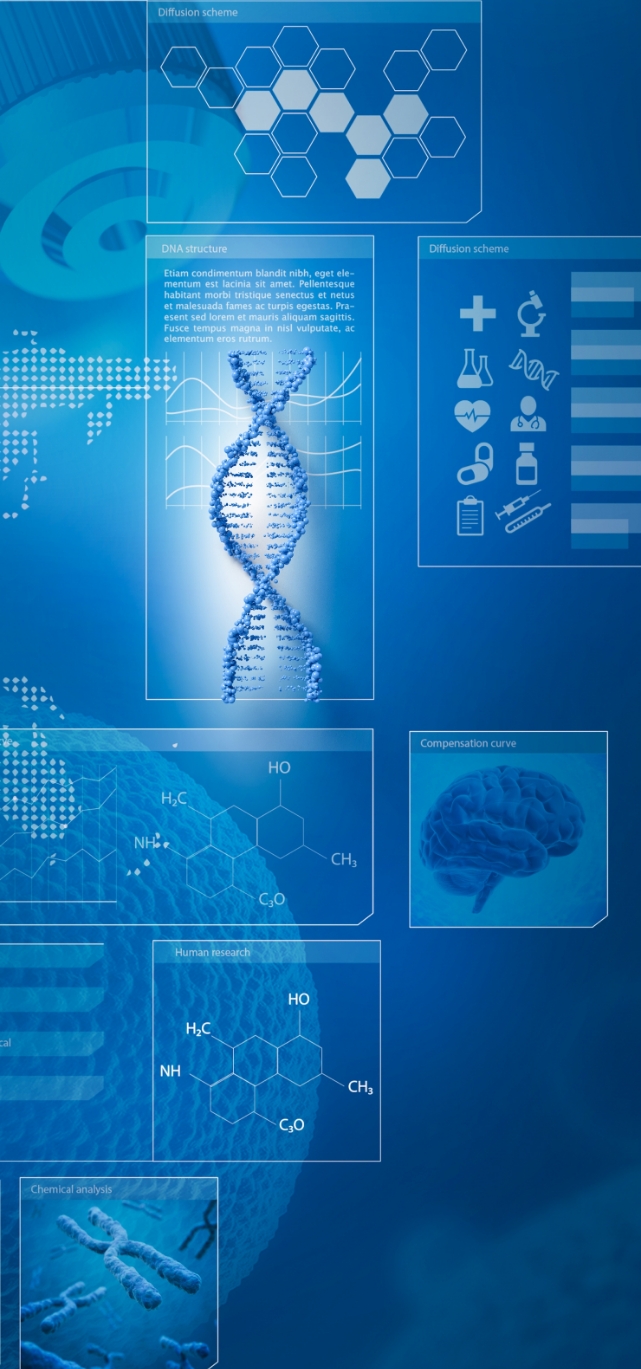This website uses cookies so that we can provide you with the best user experience possible. Cookie information is stored in your browser and performs functions such as recognising you when you return to our website and helping our team to understand which sections of the website you find most interesting and useful.
Why healthcare has high hopes from AI in Personalized Medicine?
Discover how AI can influence personalized medicine to magnify healthcare and life sciences.
The one-size fits all practice has been the standard healthcare approach for years. But, with the ever-increasing influx of diseases, the success rate of this methodology is declining. The generic assessment of diseases and treatment sometimes leads to incorrect diagnoses, ineffective medications, and, rarely, demise. And for now, the broader healthcare fraternity sees this as the only way for treatment and diagnosis.
A recent study found that only 7% of Americans are satisfied with the current medical system, and over the past 30 years, the public perception of healthcare in the region has been low. Seven out of ten Americans feel the healthcare system in the country is in a state of crisis and perhaps needs a complete overhaul. What the industry needs is finding lucrative and effective ways of treatment for higher success rates, a positive perception, and in turn, a boost in reputation.
This is where precision or personalized medicine comes to help. It has slowly gained traction in life sciences and healthcare as a novel and alternative disease prevention and treatment method. Personalized medicine is an approach to healthcare that focuses on providing treatments and therapies tailored to each patient's unique needs. Such an approach increases the chances of curing and preventing disease manifold. But developing precision medicine is a complex task.
Bringing AI to Personalized Medicine
The advent of AI is substantially boosting the development of precision medicine. One of the most significant benefits of AI in personalized medicine is its ability to analyze vast amounts of patient data and identify patterns that may not be visible to the human eye.
AI helps access every individual with their genome, essentially helping in gaining insights into their DNA and identifying any diseases or pre-existing conditions from medical history to find out accurate cures.

Every individual is different, and so is their reaction to pathogens. What AI does is remove the guesswork from diagnosis and treatment plans. Personalized medicine takes it further to eliminate the law of averages and precisely detect abnormalities to provide the best patient care.
While one may think about how much it will cost, thankfully, the costs incurred in applying AI to medicines have been reducing as companies move more advanced in using secure AI models and applying better analytics to the data at hand. Courtesy of that, in 2020, there were 286 personalized medicines available in the market as opposed to only 36 in 2010.
Personalized medicine is predicted to be a game-changer in transforming how healthcare is traditionally delivered. It guarantees to deliver on the promise of effective patient care, substantially helping boost a positive perception of healthcare.
However, how does AI exactly help in developing and improving personalized medicine? This blog will answer the questions.
How Does AI Find the Most Effective Treatment for Every Patient?
AI leverages the power of Data Analytics and Machine Learning to deliver effective treatment to patients.
Personalized Drug Discovery
Based on genetic makeup and medical history, AI can design new drugs unique to each patient, which are more effective and have lesser side effects. By analyzing and generating vast amounts of data, healthcare providers can identify precise medical treatments for a patient’s specific condition.
Predictive Modeling
AI can train predictive models to identify patients most likely to respond to a particular treatment, optimizing patient outcomes and reducing side effects.
Medical Imaging Analysis
AI can produce synthetic medical images to train computer vision algorithms to detect and diagnose medical conditions. This aids medical providers in recognizing the most viable treatment options based on a patient’s individual characteristics.
Personalized Treatment Recommendations
Patient data, when combined with AI-generated data and machine learning, helps caregivers identify suitable treatment options to cut healthcare costs in the long run.

How Does AI Help Predict the Efficacy and Side Effects of Personalized Medicines?
AI can develop predictive models using machine learning that analyzes a large amount of data to estimate personalized medicines' efficacy and potential side effects.

Simulation of Drug Interactions
AI can simulate drug interactions to predict personalized medicines' side effects, helping caregivers adjust treatment plans that minimize side effects.
Pharmacogenomics
AI reduces the risk of adverse drug reactions by analyzing the patient’s genetic makeup to identify how that patient will react to specific medications.
Clinical Trial Analysis
AI can be used to analyze the data from clinical trials and predict the efficacy and side effects of personalized medicines helping healthcare providers make informed decisions.
How Does AI Help to Develop New Personalized Treatment Options Based on Patient Data?
AI can help to develop new personalized treatment options based on patient data in the following ways –
Data Analysis
AI has the ability to analyze patient data, such as medical records, test results, and genetic information. Patterns and correlations are discovered that may not be immediately apparent to human clinicians, helping identify potential treatments and therapies.
Drug Discovery
By analyzing vast amounts of data and simulating the effect of different drugs, AI can identify potential treatments that traditional methods may have yet to discover.
Treatment Optimization
Once a treatment has been identified, AI can optimize the dosage and timing of the treatment based on the patient's characteristics. By analyzing data on the patient's metabolism, genetics, and other factors, AI can help personalize the treatment plan to ensure the best possible outcome.

How Does AI Reduce the Cost of Delivering Personalized Medicine by Automating Many Complex Tasks Involved in Treatment Planning and Delivery?
AI reduces costs and automates tasks so caregivers can focus on providing high-quality care for patients instead of being stuck in administrative tasks.

High-Speed Data Analysis
Considering the lightning speeds at which AI analyzes patient data, it helps reduce time and costs in reviewing and analyzing this data.
Treatment Planning
After determining the treatment options, AI can develop a personalized treatment plan for a patient. Optimizing the dosage and timing of the treatment and identifying potential interactions with other drugs are some tasks undertaken by AI. By automating this process, AI can reduce the time and cost of developing a treatment plan.
Treatment Delivery
AI can also automate many tasks in delivering personalized treatments, such as monitoring patient progress and adjusting treatment plans. This can reduce the need for frequent in-person visits to the clinician, which can be expensive and time-consuming for both the patient and the healthcare provider.
Challenges and Limitations Of AI
Patient data has to be complete and accurate for AI to succeed at developing and improving personalized medicines. Incorrect, poor-quality or biased data may lead to inaccurate results. Further, there is the question of data privacy and security. AI relies on access to large amounts of patient data, which raises concerns about data privacy and security. Stakeholders must ensure that patient data is stored securely with the appropriate safeguards to protect patient privacy.
Unstructured or non-standardized data can make it difficult for AI algorithms to analyze and interpret the data accurately. Also, the use of AI in healthcare and life sciences is subject to regulations and standards, which may vary by region and are complex and time-consuming to understand.
AI can be difficult to interpret, making it challenging for healthcare providers to understand how the model arrived at its recommendations. Human oversight is also mandatory, as even when AI automates multiple tasks in personalized medication, it is essential to check that the results are accurate and appropriate for the patient.
Ethical Considerations With AI
The question of bias comes into the picture as the output AI is based on the data given to it. This can result in discriminatory or unfair outcomes. Hence, the data must be diverse and representative of the overall patient population. Patient consent must be taken to inform them how their data will be used. Healthcare providers must be fully accountable and transparent for the decisions made by AI algorithms. The benefits of personalized medicine must be distributed equally amongst all patients, irrespective of their social-economic status.
Leveraging AI to Accelerate Innovation With Cambridge Technology
AI’s penetration into healthcare has unlocked new patient care and disease prevention paradigms. And it doesn’t stop there. AI is now being used in pretty much all facets of healthcare, promising to bridge gaps between patient expectations and treatment methodologies.
Have questions on how AI can help you? Talk to us.
For over two decades, we have been helping businesses globally usher in the AI-first ideology and accelerate innovation in healthcare.
Connect with us, and our AI experts will help you understand how AI can be implemented for your business.






